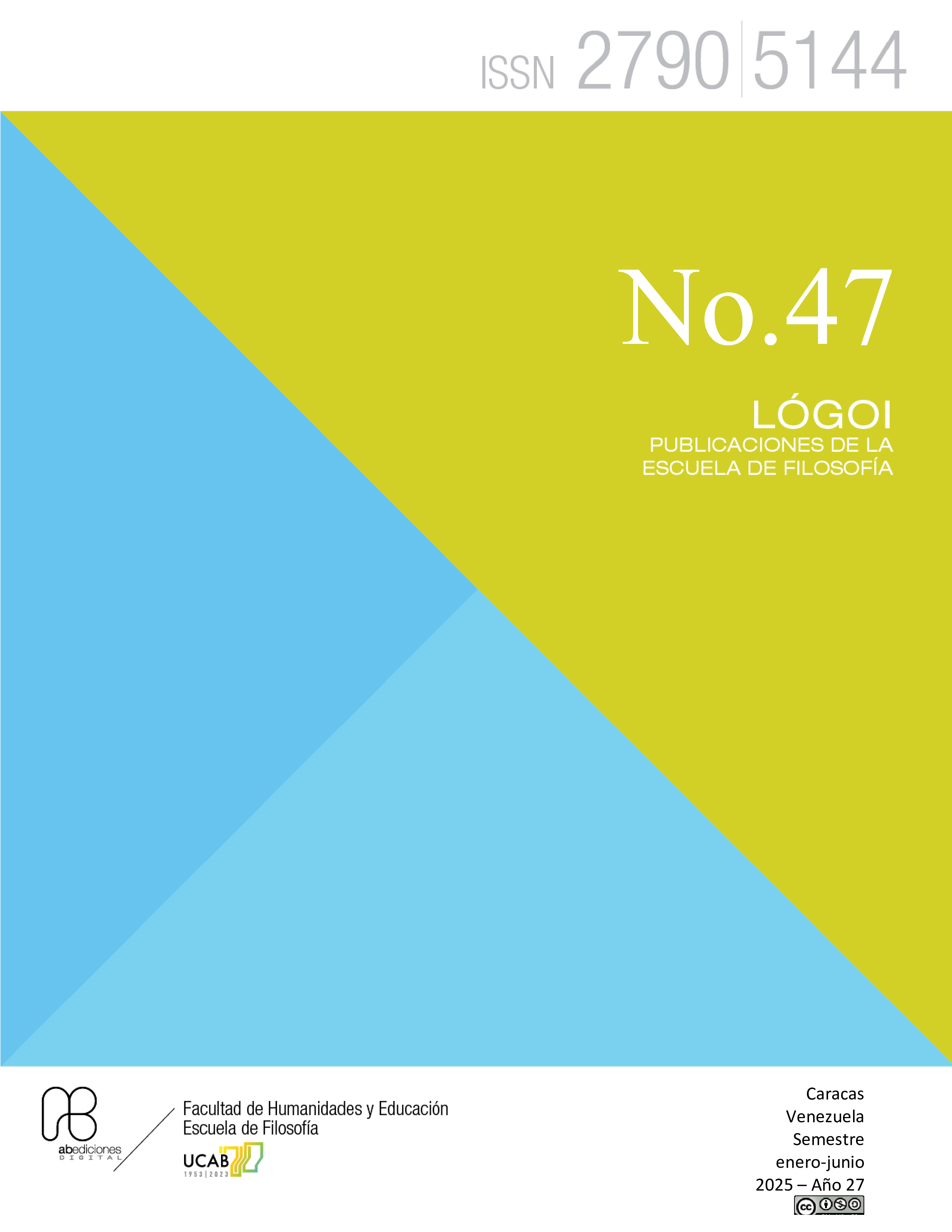The Civilization-Barbarism Dichotomy: A Critical Re-examination of Doña Bárbara
DOI:
https://doi.org/10.62876/lr.vi47.7187Keywords:
Democracy, democratic culture, Doña Bárbara, Venezuela,, politicsAbstract
Doña Bárbara is not only a fundamental work of 20th-century Venezuelan literature; it is perhaps the most important cultural document in our literary history. Gallegos captures the tensions of his time, but he does so without knowing that his time and ours converge in terms of our fragmented identity and an ongoing process of nation-building. The dichotomy of civilization and barbarism inhabits us. This is defined by our recurrent efforts to construct moral-normative codes from which to organize ourselves politically and the recurrence of disorder and violence that have marked our historical process. Barbarism haunts us like a shadow that tries to cloud our vision, to blur our focus, to make us victims of violence and passion. In this work, we propose the beginning of a discussion about the ways in which we have interpreted our lost identity. It is an endless search that leads us to question our modes of social organization, our need for emancipation, and our mistakes.
Downloads
References
Adorno, Theodor W., & Horkheimer, Max. Dialéctica de la Ilustración. (Madrid: Trotta, 1988).
Adorno, Theodor W. Minima Moralia: Reflexiones desde la vida dañada. (Madrid: Akal, 2005).
Arendt, Hanna. Vita Activa oder Vom tätigen Leben. (München: Piper, 2021).
Barragan, Julia. “La construcción de la trama ética”. Las razones de los demás. La filosofía social de John Harsanyi. (Madrid: Biblioteca Nueva, 2006).
Bicchieri, Cristina. The Grammar of Society. The Nature and Dynamics of Social Norms. (Cambridge: Cambridge University Press, 2006). DOI: https://doi.org/10.1017/CBO9780511616037
Cabrujas, José Ignacio. El país según Cabrujas. (Caracas: Monteávila Editores, 1992).
Foucault, Michel. El gobierno de sí y de los otros. (México: Fondo de Cultura Económica, 2010).
Forst, Rainer. Justificación y crítica. (Buenos Aires: Katz Editores, 2014).
Habermas, Jürgen. The Public Sphere an Encyclopedia Article. The new German Critic. N 3. (1964/1974): 49-55. DOI: https://doi.org/10.2307/487737
Habermas, Jürgen. Comunication and the Evolution of Society. (Boston: Beacon Press, 1976).
Iragorri, Mario Briceño. Mensaje sin destino. (Caracas: Biblioteca Ayacucho, 1988).
Kant, Immanuel. “Contestación a la pregunta: ¿Qué es la Ilustración?” Isegoría, 25. (1784/ 2001): 287-291.
Lafont, Cristina. Democracy without shortcuts. (Oxford: Oxford University Press, 2020). DOI: https://doi.org/10.1093/oso/9780198848189.001.0001
Lamarque, Peter. “Narrative and Invention: The Limits of Fictionality”. Narrative in Culture. The Uses of Storytelling in the Sciences, Philosophy, and Literature. (Cristopher Nash Editor). (London: Routledge, 1990).
López Aguilar, F. Dos opuestos: civilización y barbarie, vistos desde la antropología de la complejidad. Anales De Antropología, 35(1) (2010).
Ortega y Gasset, José. La rebelión de las masas. (Madrid: Editorial Rafael Berrea, 2010/1930).
Otto Apel, Karl. “Zurück zur Normalität? Oder könnten wir aus den nationalen Katastrophen etwas Besonderes gelernt haben?”. Zerstörung des moralischen Selbstbewusstseins: Chance oder Gefährdung. Siegfried Blasche, Wolfgang R. Köhler, Wolfgang Kuhlmann und Rohs Herausgegebern (Frankfurt: Suhrkamp Verlag, 1988): 91- 142.
Rawls, John. Teoría de la Justicia. (México: Fondo de Cultura Económica, 2012)
Ramírez, Teodoro. “Racionalidad y Creación”. Ciencia Nicolaita. N 55, (2012): 61- 73.
Raz, Joseph. La ética en el ámbito público. (Barcelona: Gedisa, 1994).
Sartre, Jean Paul. ¿Qué es la Literatura? (Buenos Aires: Lozada, 2022).
Urdapilleta-Muñoz, Marco; Núñez-Villavicencio, Herminio. “Civilización y barbarie. Ideas acerca de la identidad latinoamericana”. La Colmena. N 82: México: Universidad Autónoma del Estado de México Toluca. (2014): 31-40.
Van Reijen, Willen. Zerstörung des moralischen Selbstbewußtseins in der Bundesrepublik Deutschland. Zerstörung des moralischen Selbstbewusstseins: Chance oder Gefährdung. (Siegfried Blasche, Wolfgang R. Köhler, Wolfgang Kuhlmann und Rohs Herausgegebern). (Frankfurt: Suhrkamp Verlag, 1988): 299- 305.
Schmitt Karl. The concept of politics. (Chicago: University of Chicago Press, 1927/2007).
Valdes, Eduardo Deves. «América Latina: Civilización-Barbarie». Revista de Filosofía Latinoamericana y Ciencias Sociales, 7/8, (1978): 31-63.
Published
How to Cite
Issue
Section
License
Copyright (c) 2025 Miguel Ángel Latouche

This work is licensed under a Creative Commons Attribution-NonCommercial-ShareAlike 4.0 International License.










.png)












